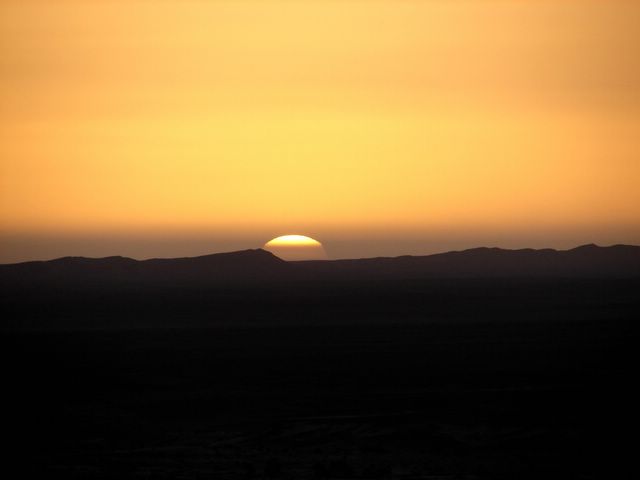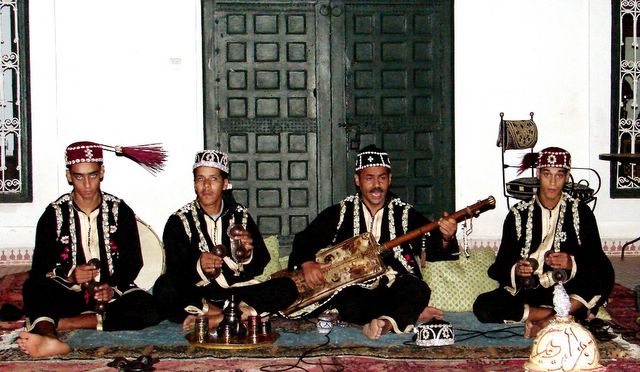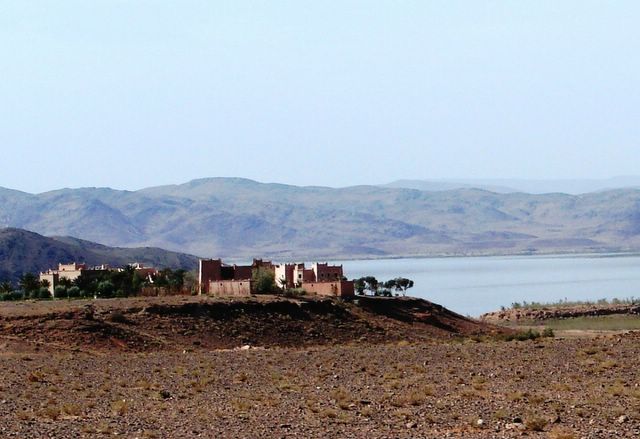Take The Deal
The deal that has been offered by the UN Permanent 5 plus Germany (P5+1) represents a markedly improved offer received to date by the Iranians. The offer currently on the table recognizes Iran's right to civilian nuclear power - something the US was not prepared to accept even a few months ago. It also opens the door to direct talks with the US on a wide range of issues including regional security, trade, investment, and the possibility of diplomatic normalization (taking note of the dramatic shift with regard to Libya), although highly unlikely in the short term. The offer provides a sufficient basis for Iran to engage in negotiations and further advance its economic and diplomatic interests.
The argument that Iran pursue peaceful nuclear energy as a way to enhance its global competitiveness through maximizing the revenue potential of its oil exports is not only valid, but also crucial for the country's development. This is something that we ought to recognize and fully acknowledge. Let us remember that the US Congress has itself recently issued a policy statement that aims to have the majority of US baseload electricity generated by nuclear power - a goal that will require building 50 or more nuclear power plants in the medium term. In fact, the US is planning construction of some 20 plants in the short term. The US has also recently signed a significant agreement with India encouraging the latter to build more nuclear power stations and offering a wide range of technical and trade assistance in this area. So, it is undeniable today, even by those environmentalist groups who once opposed it, that civilian nuclear power ought to be a key element of a sustainable strategy for global energy resource use.
Nonetheless, the pursuit of nuclear weapons is another matter. Unlike civilian energy, a global public good and right of nations, nuclear weaponry is a global threat. It is a technology that we should not look forward to expanding or developing anywhere. There is no such thing as a "responsible" use of nuclear weapons. Nuclear weapons are tools of massive terror employed to secure victory by devastation in an asymmetric war. Their mere existence is a danger to all. We should not forget that it is the US, the leader of the democratic world, which is the only country to have employed this technology as a weapon of war. The excuse of willingly mass murdering scores of civilians in order to gain asymetric advantage and secure victory by any nation is frankly not that different from the notion advanced by terrorist groups who justify their random and despicable murder of civilians as a "necessary" action taken in an asymmetric conflict with the sophisticated and powerful armies of the world.
The world should cooperate in good faith to eliminate the threat posed by the existence and proliferation of nuclear weapons technology. This applies to India and Pakistan as it applies to Israel and Iran. It applies to the US and the UK as it applies to China and Russia. The democratic excuse does not hold water because history shows otherwise. Interestingly enough, when Saddam was employing an arsenal of chemical weapons against this same Iranian regime, the latter never retaliated in kind, although capable and arguably justified in the context of international law. This is not to say that Iran would not employ nuclear weapons if given the opportunity to acquire them. Indeed, all efforts must be deployed to prevent a situation where we even have to entertain this awfully disturbing question. What it means is that history shows that both democracies and dictatorships are capable of committing mass murder in the name of a “just cause”.
Iran has played a gutsy and tricky game of poker with the West until now. It skillfully took advantage of the changing geostrategic environment created by recent conflicts in Afghanistan and Iraq. It has cashed in on political developments in Iraq and succeeded in frustrating US efforts in that country. It is taking advantage of reduced US credibility on the international scene following the Iraqi WMD fiasco and it is empowered by the global energy situation with increasing demand for oil and natural gas by the world's emerging economies, most notably, India and China. Iran’s regional power is today at its strongest point since the clergy came to power in 1979.
However, this is where Iran, if anything, ought to learn a lesson from the recent American experience in Iraq. The lesson is not to overplay your cards and be fully aware of your strengths, limitations, and handicaps. Make sure that you remain within the scope of your limitations and be flexible enough to adjust your strategies when the facts on the ground no longer support your theories. Don’t search for an adrenaline rush by playing high-stakes poker with the peace, security, and prosperity of nations. Personal, ideological, and nationalistic ego can be a dangerous threat to enlightened pragmatism and the long-term security of the world.
Iran should not waste another 27 years by stubbornly isolating itself into misery and decay. It should take the deal and come to the table – there is more to gain from further negotiations. Lest, it seeks a path where it will lose all leverage gained to date and have much more to lose than to gain.


























3 Comments:
Hi Jawad
Very intersting commentary. I agree that Iran is in a much better position today than a few months ago, but this positon is not likely to stay for much longer. Unless Iran shows signs of good will and intentions, the US will have all the ammunition it needs to retaliate and it is likely to convince most of Europe of its position. It is intersting that Russia today announced that it would not take a strong position against Iran, however.
However you look at it, Iran's defiant position has paid off.. the question is how long can it afford to play chicken.
Jawad - have you been to justdahlia.blogspot.com lately?
Dahlia
June 27, 2006
Hi Dahlia:
Great to have you back.
You are correct. They built a favorable negotiating position that they would be well advised not to squash with false confidence and happy-go-lucky illusions. The regional circumstances favor them and the international climate is certainly not amenable to sanctioning them at this time. But, this window is fairly narrow and it will not stay open for a long time. If they show no flexibility in their position while variables in the regional/international situation change (which is bound to happen), they will fall face down and kiss any leverage they may have gained goodbye for several decades to come.
Sorry I have been somewhat delinquent in my blogging :) But I am looking forward to reading your blog.
June 28, 2006
Welcome A&P. They are flexing that's for sure - and so far they proved to be quite skillful . But caution would be the name of the game here. There are too many factors on the global scene that they can not control or influence for long. They better know how to leverage the gains they made and cash in their chips when it counts.
August 21, 2006
Post a Comment
<< Home